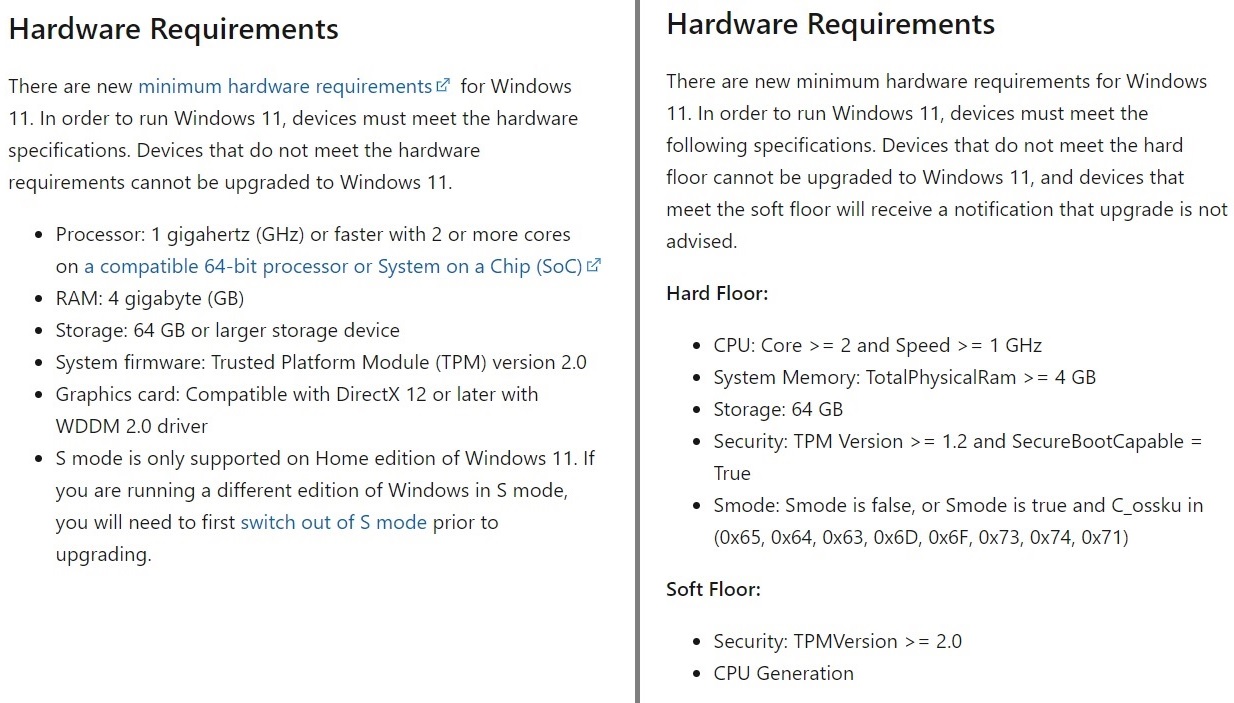Windows 11 is expected to be launched during the holiday season or early next year, and a preview version will be provided to Windows Insiders in the coming days. According to Microsoft, one of the most important tidbits is that older PCs, including Surface products, will not "officially" support Windows 11.
 |
| Windows11 |
Surprisingly, Windows 11 has significantly changed the minimum system requirements. The official Microsoft documentation confirms that you need an updated CPU, 4GB of RAM (increased from 2GB), and a processor/motherboard that supports TPM 2.0 (Trusted Platform Module) , A computer chip that provides higher security at the hardware level.
During the event, Microsoft confirmed that Windows 11 will be provided as a free upgrade for Windows 10 PCs. However, Panos Panay and Microsoft officials did not initially provide any details about supported or unsupported devices. After the event, Microsoft released a number of supporting documents, highlighting the minimum system requirements.
According to the supporting documents, only devices equipped with 8th generation Intel Core processors, AMD Ryzen 2000 and newer processors can officially support Windows 11.
If your chip is older than the 8th generation, according to Microsoft, you will not be able to officially run Windows 11. In fact, a Microsoft representative confirmed that not all Surface devices will be upgraded to Windows 11.
Microsoft's solution is simple: use Windows 10 or buy a new supported PC by 2025.
Intel CPU supported by Windows 11
- Intel 8th, 9th, 10th, 10th, 11th and newer versions.
- Intel Xeon Skylake-SP, Cascade Lake-SP, Cooper Lake-SP and Xeon Ice Lake-SP.
- AMD Ryzen 2000, 3000, 4000 and 5000.
- AMD Ryzen Threadripper 2000, 3000 and Pro 3000.
- AMD EPYC (Xiaolong) second generation and EPYC (Xiaolong) third generation.

Also supports the newer Pentium and Celeron processors.
The above list defines your ability to upgrade or not. If you are using an old computer, you cannot upgrade to Windows 11 even if you meet TPM 2.0 and other requirements.
Microsoft documents previously stated that old devices will be allowed to install new operating systems, but upgrades are not recommended. However, after users discovered the "soft" and "hard" floor requirements, Microsoft edited the document.
The new page has confirmed the 8th generation + CPU and TPM 2.0 requirements.
A Microsoft representative has independently confirmed to update the CPU requirements listed in the document.
Therefore, the biggest question is, when the new operating system goes live later this year or early next year, what will happen to PCs that do not meet the requirements of Windows 11? You can continue to use Windows 10 with quality updates until 2025, or bypass these so-called "requirements" and install a new operating system informally.
Please remember that Windows 11 is still Windows, and we can run the operating system on official "unsupported" PCs. Due to the leaked version, it is clear that devices already running Windows 10 should be able to handle Windows 11 without any problems.

